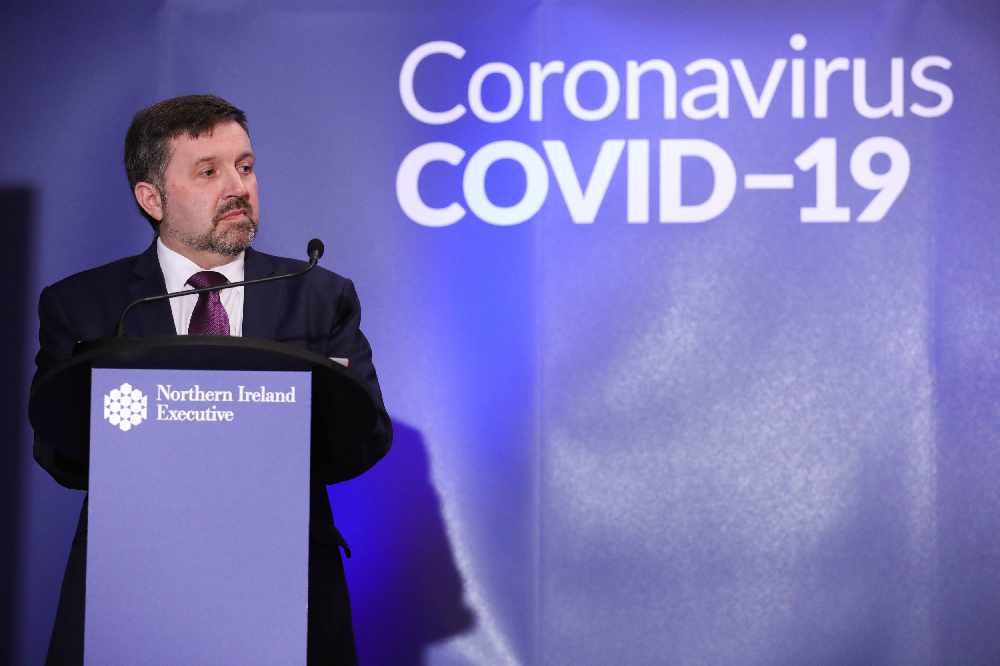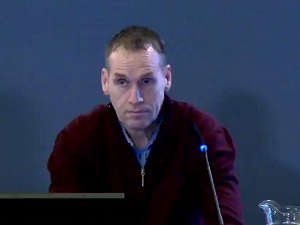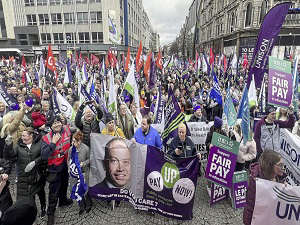
Q Radio News/PA
Plans to accelerate the rollout of Covid-19 booster jabs in Northern Ireland have been announced.
Measures outlined by Stormont Health Minister Robin Swann include more walk-in clinics to increase the region’s lagging rate of booster uptake, which currently sits at just below 50% of the eligible population.
The plan will also see enhanced efforts to reach those who have yet to get a first jab, particularly younger people.
GPs and community pharmacies are set to play a key role, with dedicated vaccine hubs also being operated by the region’s health trusts.
The move follows Wednesday’s decision to introduce mandatory Covid certification entry checks across the hospitality sector in Northern Ireland.
Health minister @RobinSwannMoH has unveiled the latest plans to accelerate the roll-out of Covid-19 vaccine boosters and further increase first dose take-up.👇 pic.twitter.com/mmhAJ6sfCY
— Q Radio News (@qnewsdesk) November 18, 2021
On Thursday, the region’s chief scientific adviser acknowledged that the certification scheme could be open to abuse, with people falsely reporting negative Covid-19 test results, but he expressed confidence that people would act in the best interests of wider society.
Officials in Mr Swann’s department continue to work on a further package of proposals aimed at increasing compliance with existing rules, such as face masking wearing in certain indoor settings.
The various different measures are being rolled out in response to surging transmission rates in the region and amid warnings that ministers may face the prospect of reintroducing more severe restrictions ahead of Christmas if the current wave is not brought under control.
“I am very pleased to see the roll-out of boosters accelerating,” said Mr Swann.
“More than 260,000 of our citizens have now had boosters or third doses and this number will continue to climb significantly.
“People are still coming forward for first doses and there are indications that demand for first doses is increasing again. Within the past week alone, community pharmacies administered in the region of 1,000 first doses to people aged 18 and over.
“The planned programme of additional walk-in clinics will help meet demand for first doses, as well as for boosters.
“Overall, the vaccination programme provided 97,000 jabs in the last week. We owe a great debt of gratitude to everyone involved in making this happen.
“It should be remembered that this vaccination programme is being delivered by a health and social care system experiencing the most sustained and severe pressures in its history.”

Health minister Robin Swann
On Wednesday, a majority of Stormont ministers backed the Covid certification scheme despite DUP opposition.
It will see legal enforcement of coronavirus status entry requirements for nightclubs, bars, restaurants and a range of other settings from December 13.
While the four DUP ministers voted against the vaccine passport proposal, the party did not deploy a cross-community voting mechanism that could have blocked the introduction of certification in the region.
However, the DUP has called for a vote in the Assembly before the policy is introduced. Previous Executive decisions on Covid-19 rules, including lockdowns, have been subject to retrospective votes in the chamber, usually weeks after the measures have been rolled out.
It is uncertain whether such a debate will be scheduled ahead of the legislation coming into force on November 29.
A two-week grace period will then be in operation with enforcement action beginning on December 13. Venues that do not comply with the rules could face initial fines of £1,000.
While the DUP opposed the move at the Executive table, there is evidence of differing opinions within the party.
Some prominent members, such as First Minister Paul Givan, MP Sammy Wilson and former economy minister Paul Frew, have been highly critical of the policy but others, including MLA Pam Cameron, have indicated their backing for the measure.
On Thursday, DUP MLA Christopher Stalford said certification was a “distraction” that would not alleviate the pressures on the health service.
He said increasing booster rates and diverting resources to domiciliary care packages would have much more impact.
“Covid passports are not going to stop ambulances queuing outside EDs,” he said.
“We need a proper plan to do that. One that deals with root causes of why our hospital staff are under pressure. One that ensures medically fit to be discharged people can get a care package.”
Under the compulsory certification scheme, people wishing to gain entry to designated venues would need to demonstrate evidence of Covid-19 vaccination, a negative lateral flow test result, or proof of a coronavirus infection within the previous six months.
Concerns have been raised that the lateral flow test result option could be open to abuse as the process relies on individuals self-reporting a negative result.
Chief scientific adviser Professor Ian Young conceded the potential for results to be manipulated but he expressed hope people would act in the public good.


 Co Tyrone man to be charged with murder following death of assault victim
Co Tyrone man to be charged with murder following death of assault victim
 Omagh bombing survivor tells inquiry he placed sheets over victims’ bodies
Omagh bombing survivor tells inquiry he placed sheets over victims’ bodies
 Three arrested after men attacked with bars, hammers and knives in Lisburn
Three arrested after men attacked with bars, hammers and knives in Lisburn
 Teachers to take industrial action after rejecting pay offer
Teachers to take industrial action after rejecting pay offer